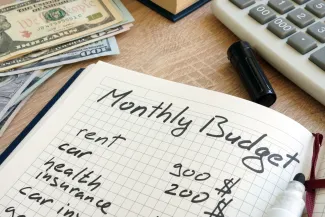
Nebraska bill would ban schools from using collection agencies for student lunch debt
(The Center Square) – A bill in the Nebraska legislature would prevent school districts from contracting debt collection agencies to collect students' outstanding breakfast or lunch debt.
State Senator Danielle Conrad, D-Lincoln, proposed LB 855 to make this change. It would also prevent districts from charging interest or other penalties on these outstanding debts.
Her bill received consideration from the Education Committee on Tuesday this week, according to a news release.
“When families are living on the edge — and these are the families who can’t pay their school meal debt — and they get turned over to collections, it really starts to spiral for them,” Conrad said in the release.

Conrad added that many poorer families cannot afford legal counsel, and even a school lunch debt default will negatively impact their credit report, negatively impacting their ability to rent housing.
Katie Nungesser also testified in support of the bill on behalf of Voices for Children in Nebraska.
Since school meals have gotten more expensive in recent years, she said families have struggled to keep up with the expense.
Chase Boyd of Omaha was another person who testified in favor of the bill. He was in fourth grade during the 2008 recession and said his family faced lunch debt due to financial difficulties.
He said that a school employee told him in the lunch line one day that his family had an overdue lunch bill, making him wonder if eating lunch was bad for his family.
“It is my belief that no child should have to go through or experience what I did,” Boyd said in the release. “The embarrassment that I felt that day should be no child’s cross to bear.”
Stephen Grizzle, superintendent of South Central Nebraska Unified School District #5, testified against the bill.
Although Grizzle said he supports what the bill intends to do, he argued that families may stop paying for school meals if no consequences exist for not paying and that this will mean less revenue for school districts.
“I feel like this is another example of a bill being passed that’s requiring the school districts to pick up more and more costs,” Grizzle said in the release. “[Schools] also get accused of spending too much money and being the sole reason for high property taxes.”
The committee has not taken action on the bill yet.

















